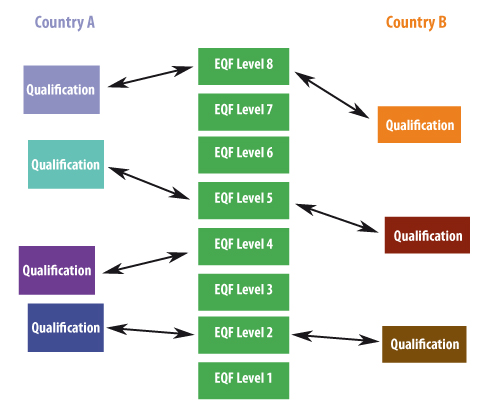The NQFL is a grid consisting of eight levels in which all formal qualifications of the Liechtenstein VET system are systematically classified. This is done through action-competence-oriented descriptors, which describe the requirements for each level. The levels of the Qualifications Framework correspond with those of the EQF. The descriptors also closely relate to those of the EQF. In order to adequately clasyify them they were adapted to the special features of the Liechtenstein VET system, particularly the importance of periods of practical training. The descriptors of the NQFL are formulated in a VET-specific way across all eight levels. The SBFI carried out the elaboration.
The three descriptors «knowledge», «skills» and «competences» are defined for specific use in Liechtenstein VET:
- "Knowledge" refers to declarative knowledge in a field of work or learning and is divided into the categories "knowing" and "understanding".
- "Skills" refers to the ability to apply knowledge in order to carry out tasks and solve problems. A distinction is made here between procedural and sensomotor skills.
- "Competences" express the constant and routine exercise of knowledge and skills in a work enviorment and are divided into "professional" and "social" competences. The wording of this descriptor reflects the importance of practical experience.
- They show that skills are acquired that go beyond the professional field and promote the further development of the individual in- and outside of their work field.
Level 1 is unlikely to be occupied by vocational qualifications. Levels 2 to 5 are available for basic VET, depending on the qualification.
Levels 5 or 6 to 8 of the EQF are open not only to higher education qualifications but also to VET qualifications at tertiary level (higher VET) and will be shown in the Y-frame on the left. However, Liechtenstein does not currently award diplomas at the tertiary level.
